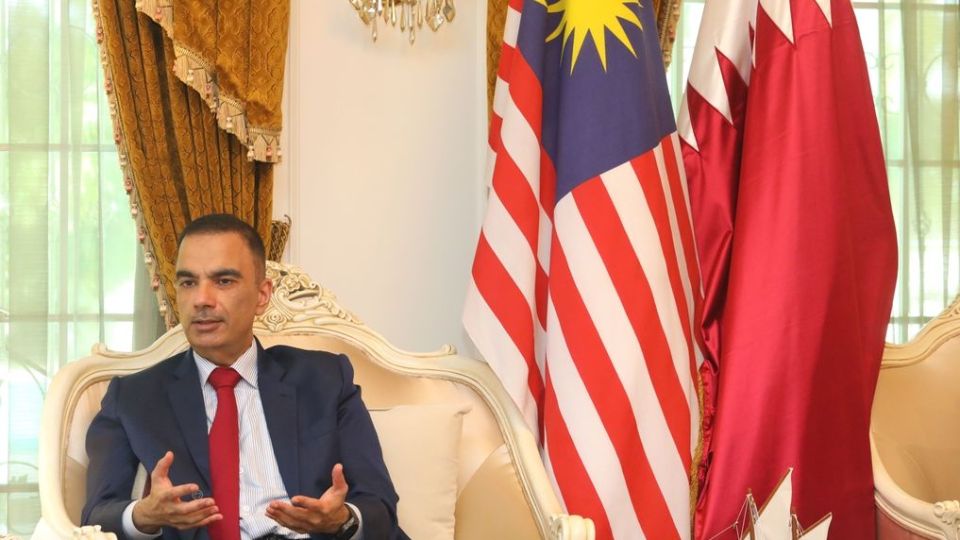June 24, 2022
KUALA LUMPUR – ALL 32 participating nations have now been confirmed, but with just five months to go before “the greatest show on Earth”, criticism for the first-ever World Cup in the Middle East has not abated.
Indeed, it’s not mere hyperbole if we call the Qatar 2022 World Cup the most controversial ever. The barrage of criticism began when the nation was first awarded the chance to host football’s biggest tournament in 2010.
A country with virtually no World Cup pedigree and the smallest country to host (about a million permanent population) led many to question the awarding of the tournament. Allegations of large-scale bribery of FIFA delegates to secure the rights have not gone away also.
The biggest controversy was reserved for the dates of this year’s competition. The World Cup is traditionally held every four years during summer in Europe, when most of the European club leagues have ended. But to do so in Qatar would be madness because temperatures in the gulf nation will reach more than 50˚C in July.
Hence, the concession to hold the World Cup in November, which is winter in Qatar and daytime temperatures will be far milder, around 24˚C. So, for probably the first time, the major European club competitions will cease for the duration of the World Cup.
Qatar’s human rights record was also put on scrutiny after the awarding of the tournament. The country has a huge foreign labour workforce and allegations of workers’ exploitation, unsanitary living conditions and unpaid salaries have dogged the country since.
Despite all the controversies and criticism, FIFA and Qatar are going ahead with the tournament which will kick off with Senegal playing the Netherlands on Nov 21.
I interviewed the Qatar ambassador to Malaysia, Fahad Mohammed Kafoud, recently to get his take and address the issues surrounding this historic World Cup.
Over lunch, Fahad revealed that far from being problematic, changing the World Cup from its traditional July date would have a positive effect on overall viewership of the tournament.
“Changing the time of the tournament will benefit fans watching on TV or spectating at the stadiums. TV viewers around the world will enjoy an action-packed schedule of matches. For fans visiting Qatar, moving the tournament to the cooler winter months gives them the comfort of watching matches with cooler temperatures,” he said.
Acknowledging a debt of gratitude to the country’s foreign labour that has completed nearly 100% of World Cup infrastructure projects, including its high-tech stadia, Fahad said his government had taken steps to improve living conditions for its workers.
“We are actively addressing this issue, including improving worker accommodation as well as working hours. For instance, because of the summer heat, workers cannot work outside between 10am and 3.30pm from June 1 to Sept 15,” he said.
The Qatar World Cup will go down as the most expensive games ever staged.
Estimates put the total cost at a mind-boggling US$170bil (RM749.2bil). Compare this with the US$4.3bil (RM19bil) that South Africa spent on the 2010 World Cup.
Very few countries in the world would be able to spend such vast amounts. But because of this knock-on effect, fans are already complaining about the high price of accommodation and F&B.
“I assure football fans from Malaysia who are planning to travel to Qatar that there is affordable food and retail options available. In Doha, like in other Asian hubs, food and household provisions are available over a range of price points that cater to the diverse community living in Qatar. There are multinational supermarkets which are on the higher end of the scale but also local Qatari, South Asian and East Asian options which are moderately priced,” said Fahad.
“There are eateries where Malaysians can get very affordable nasi lemak and mee goreng. There will be something for everyone’s taste, preferences and budgets at this World Cup,” he added.
On accommodation for the large number of football fans in November, the ambassador said the government had promised the availability of 130,000 rooms from budget to 5-star.
He said fans also have the option of staying in neighbouring countries and flying or driving in for the matches.
Fahad said from the start of the bidding process in 2010, Qatar has always maintained that the tournament would be a regional one to reflect the fact that the World Cup is the first ever to be hosted in the Arab and Muslim world.
“We have incorporated elements of Arab history and culture into the design of our world-class stadiums. A couple of examples include Al Bayt Stadium, which is designed like a traditional Arabic tent called Bayt al Sha’ar, and the Al Janoub Stadium, which is designed like an inverted Dhow boat reflecting the region’s seafaring past,” he said.
The European and South American stranglehold on football means that FIFA rarely allows a World Cup to be played outside these two continents. In recent memory, Japan and South Korea in 2002 and South Africa in 2010 were instances where despite misgivings from the football establishment, these two tournaments were successful, not only from a football perspective but also from a cultural exposure standpoint.
Qatar’s hosting of the World Cup means so much to Arabs and Muslims because it is the first time the tournament is being held in a place that showcases their religion and culture, giving them the opportunity to build bridges of understanding with different cultures and break down long-held stereotypes.

